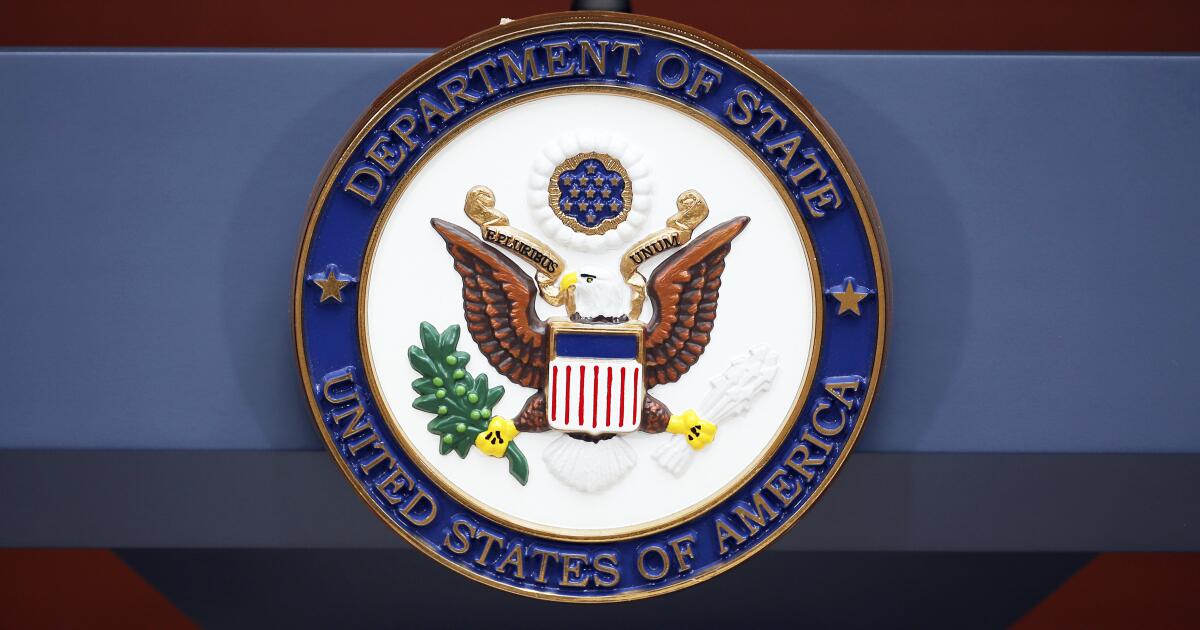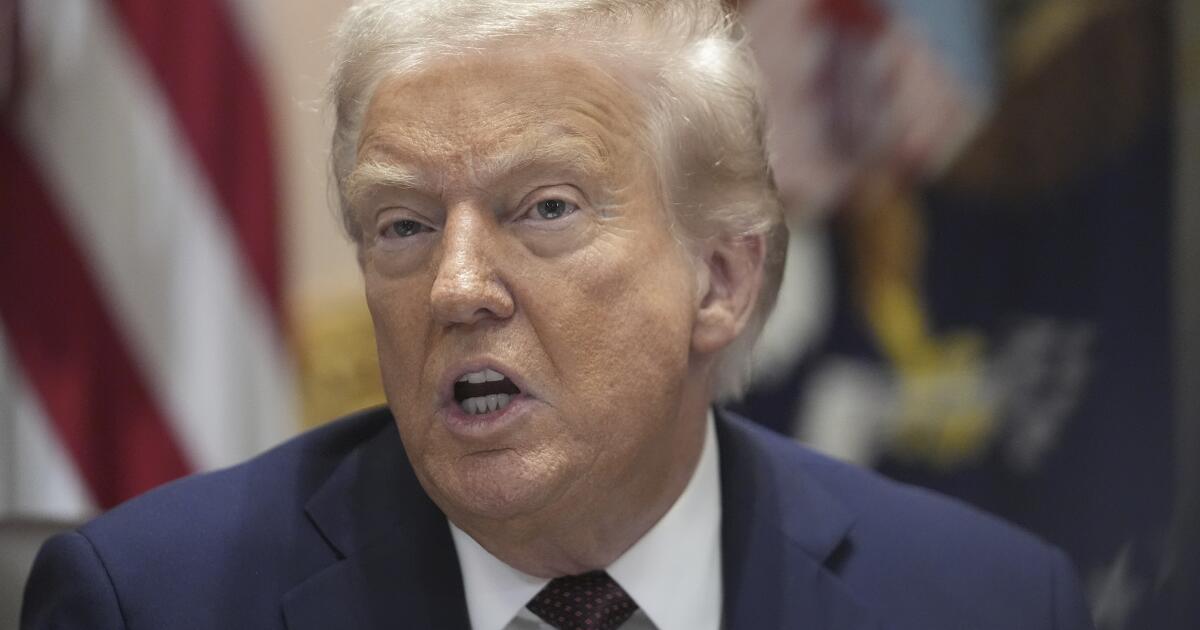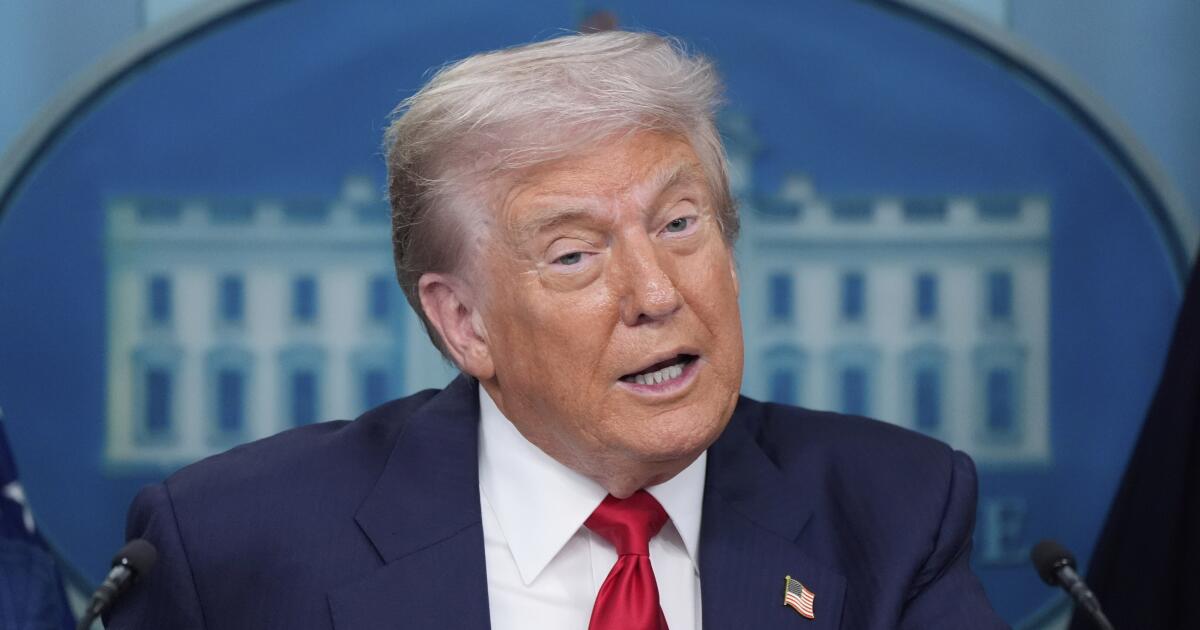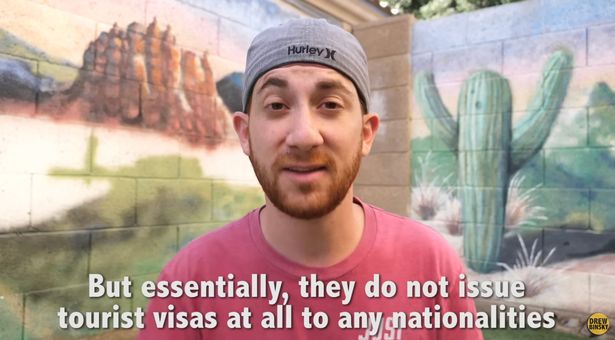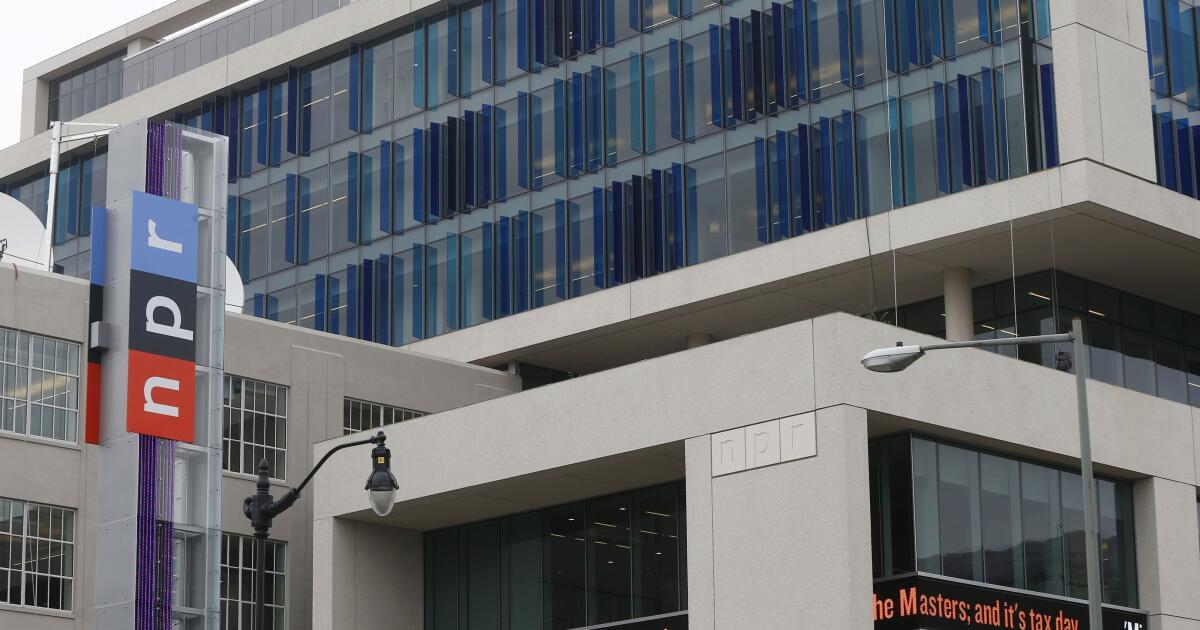WASHINGTON — The House narrowly voted Thursday to cut about $9.4 billion in spending already approved by Congress as President Trump’s administration looks to follow through on work done by the Department of Government Efficiency when it was overseen by Elon Musk.
The package targets foreign aid programs and the Corp. for Public Broadcasting, which provides money for National Public Radio and the Public Broadcasting Service as well as thousands of public radio and television stations around the country. The vote was 214-212.
Republicans are characterizing the spending as wasteful and unnecessary, but Democrats say the rescissions are hurting the United States’ standing in the world and will lead to needless deaths.
“Cruelty is the point,” Democratic leader Hakeem Jeffries of New York said of the proposed spending cuts.
The Trump administration is employing a tool rarely used in recent years that allows the president to transmit a request to Congress to cancel previously appropriated funds. That triggers a 45-day clock in which the funds are frozen pending congressional action. If Congress fails to act within that period, then the spending stands.
“This rescissions package sends $9.4 billion back to the U.S. Treasury,” said Rep. Lisa McClain, House Republican Conference chair. “That’s $9.4 billion of savings that taxpayers won’t see wasted. It’s their money.”
The benefit for the administration of a formal rescissions request is that passage requires only a simple majority in the 100-member Senate instead of the 60 votes usually required to get spending bills through that chamber. So if they stay united, Republicans will be able to pass the measure without any Democratic votes.
Senate Majority Leader John Thune (R-S.D.) said the Senate would likely not take the bill up until July and after it has dealt with Trump’s big tax and immigration bill. He also said it’s possible the Senate could tweak the bill.
The administration is likening the first rescissions package to a test case and says more could be on the way if Congress goes along.
Republicans, sensitive to concerns that Trump’s sweeping tax and immigration bill would increase future federal deficits, are anxious to demonstrate spending discipline, though the cuts in the package amount to just a sliver of the spending approved by Congress each year. They are betting the cuts prove popular with constituents who align with Trump’s “America first” ideology as well as those who view NPR and PBS as having a liberal bias.
In all, the package contains 21 proposed rescissions. Approval would claw back about $900 million from $10 billion that Congress has approved for global health programs. That includes canceling $500 million for activities related to infectious diseases and child and maternal health and another $400 million to address the global HIV epidemic.
The Trump administration is also looking to cancel $800 million, or a quarter of the amount Congress approved, for a program that provides emergency shelter, water and sanitation, and family reunification for those forced to flee their own country.
About 45% of the savings sought by the White House would come from two programs designed to boost the economies, democratic institutions and civil societies in developing countries.
Democratic leadership, in urging their caucus to vote no, said that package would eliminate access to clean water for more than 3.6 million people and lead to millions more not having access to a school.
“Those Democrats saying that these rescissions will harm people in other countries are missing the point,” McClain said. “It’s about people in our country being put first.”
The Republican president has also asked lawmakers to rescind nearly $1.1 billion from the Corp. for Public Broadcasting, which represents the full amount it’s slated to receive during the next two budget years. About two-thirds of the money gets distributed to more than 1,500 locally owned public radio and television stations. Nearly half of those stations serve rural areas of the country.
The association representing local public television stations warns that many of them would be forced to close if the Republican measure passes. Those stations provide emergency alerts, free educational programming and high school sports coverage, and highlight hometown heroes.
Advocacy groups that serve the world’s poorest people are also sounding the alarm and urging lawmakers to vote no.
“We are already seeing women, children and families left without food, clean water and critical services after earlier aid cuts, and aid organizations can barely keep up with rising needs,” said Abby Maxman, president and chief executive of Oxfam America, a poverty-fighting organization.
Rep. Jim McGovern (D-Mass.) said the foreign aid is a tool that prevents conflict and promotes stability, but the measure before the House takes that tool away.
“These cuts will lead to the deaths of hundreds of thousands, devastating the most vulnerable in the world,” McGovern said.
“This bill is good for Russia and China and undertakers,” added Rep. Steve Cohen (D-Tenn.).
Republicans disparaged the foreign aid spending and sought to link it to programs they said DOGE had uncovered.
Rep. Chip Roy (R-Texas) said taxpayer dollars had gone to such things as targeting climate change, promoting pottery classes and strengthening diversity, equity and inclusion programs. Other Republicans cited similar examples they said DOGE had revealed.
“Yet, my friends on the other side of the aisle would like you to believe, seriously, that if you don’t use your taxpayer dollars to fund this absurd list of projects and thousands of others I didn’t even list, that somehow people will die and our global standing in the world will crumble,” Roy said. “Well, let’s just reject this now.”
Freking writes for the Associated Press.

